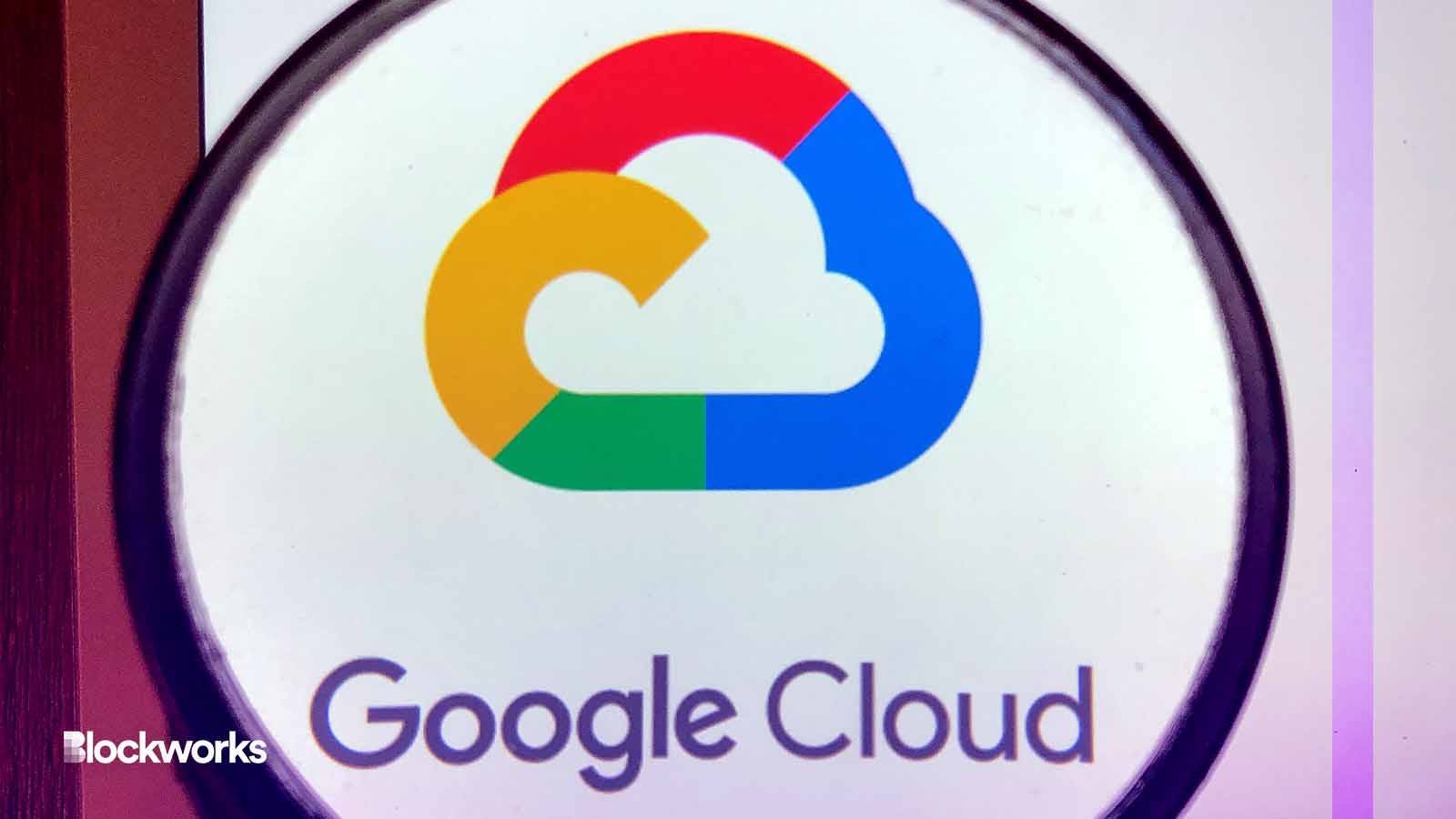LayerZero moves to Google Cloud: A move away from decentralization?
“It kind of feels like we’re just giving up on decentralization a little bit”

Lori Butcher/Shutterstock modified by Blockworks
It was “really big news that wasn’t talked about enough” at the Permissionless II conference, Ren Kong says.
Previously reported at Blockworks, Google Cloud will act as an oracle provider for LayerZero, a permissionless protocol for relaying messages between blockchains. While Google Cloud serves as an additional option, users can still opt for other Web3 interoperability protocols like Chainlink if they prefer.
On the 0xResearch podcast (Spotify/Apple), the Blockworks research analyst expresses concerns about the news. “Google Cloud is very, very far from decentralized. It’s just a bunch of data servers, probably 100% controlled by Google,” he says.
“It was cool when I first heard it, but I’m not sure how I feel about it after thinking a bit about it.”
The argument for enabling Google Cloud as an oracle is all about security, Kong says. LayerZero’s answer to the security model question, Kong explains, was that “Google is a one trillion dollar big tech company. They’re not going to rug you.”
Read more: Google Cloud is LayerZero’s new default oracle operator
Kong suggests the situation could be a case of “Big Tech social consensus” controlling what should ideally be a decentralized activity. “I’m not really sure what the point of using an institution for the blockchain is.”
How it works
Kong explains a few more details about how the system works. Two entities — the oracle and the relayer — facilitate cross-chain messaging, he says.
“The oracle is in charge of retrieving block headers,” he continues. “The relayer is in charge of fetching a transaction identifier proof, and then providing that to the endpoint.”
“The oracle feeds the block header to the endpoint,” he says. “The relayer feeds a transaction identifier, a transaction identifier proof and the message [to the endpoint].”
When the two elements arrive together at the endpoint and match each other, the message is unlocked, Kong explains. “And whatever transaction that needs to be executed gets executed.”
When told by LayerZero representatives that Google would not run full nodes for supported LayerZero chains, Kong says he was confused. “To my understanding, you need to run a full node in order to pull the block header from a blockchain.”
“I’m not really sure what’s happening behind the scenes,” he says. “That’s another thing that left me a bit concerned.”
It just feels iffy
The premise of LayerZero’s security model, at least up until now, is that the two roles — relayer and oracle – are “completely distinct from each other,” Kong says. If the two entities are allowed to collude with each other, “then you can do something malicious with LayerZero,” Kong explains. “Now, it seems pretty tightly integrated.”
“It just feels iffy, you know?”
“It kind of feels like we’re just giving up on decentralization a little bit.”
Fiebach is impressed with Google’s advancements into blockchain technology, noting they have become a strong competitor to Alchemy, providing archival node data for Ethereum users. “They’re pretty sophisticated at this point.”
“They’re full steam ahead into crypto,” Fiebach says, “and really trying to be in the space — and it’s really, really cool to see.”
Blockworks Research analyst Sam Martin notes that “it’s just the default,” explaining, “you can still configure the oracle of your choice.”
“Google Cloud is partnering with a Web3 company and they’re putting their reputation on the line in the process of it,” Martin says. “I think that’s pretty huge.”
Updated Sept. 20, 2023 at 6:14 pm ET: Clarified for additional context.
Updated Sept. 20, 2023 at 6 pm ET: Clarified for additional context.
Updated Sept. 20, 2023 at 4:15 pm ET: Following publication of this article, Bryan Pellegrino, LayerZero co-founder, clarified that the default oracle for LayerZero is the TSS oracle.
Get the news in your inbox. Explore Blockworks newsletters:
- The Breakdown: Decoding crypto and the markets. Daily.
- 0xResearch: Alpha in your inbox. Think like an analyst.






